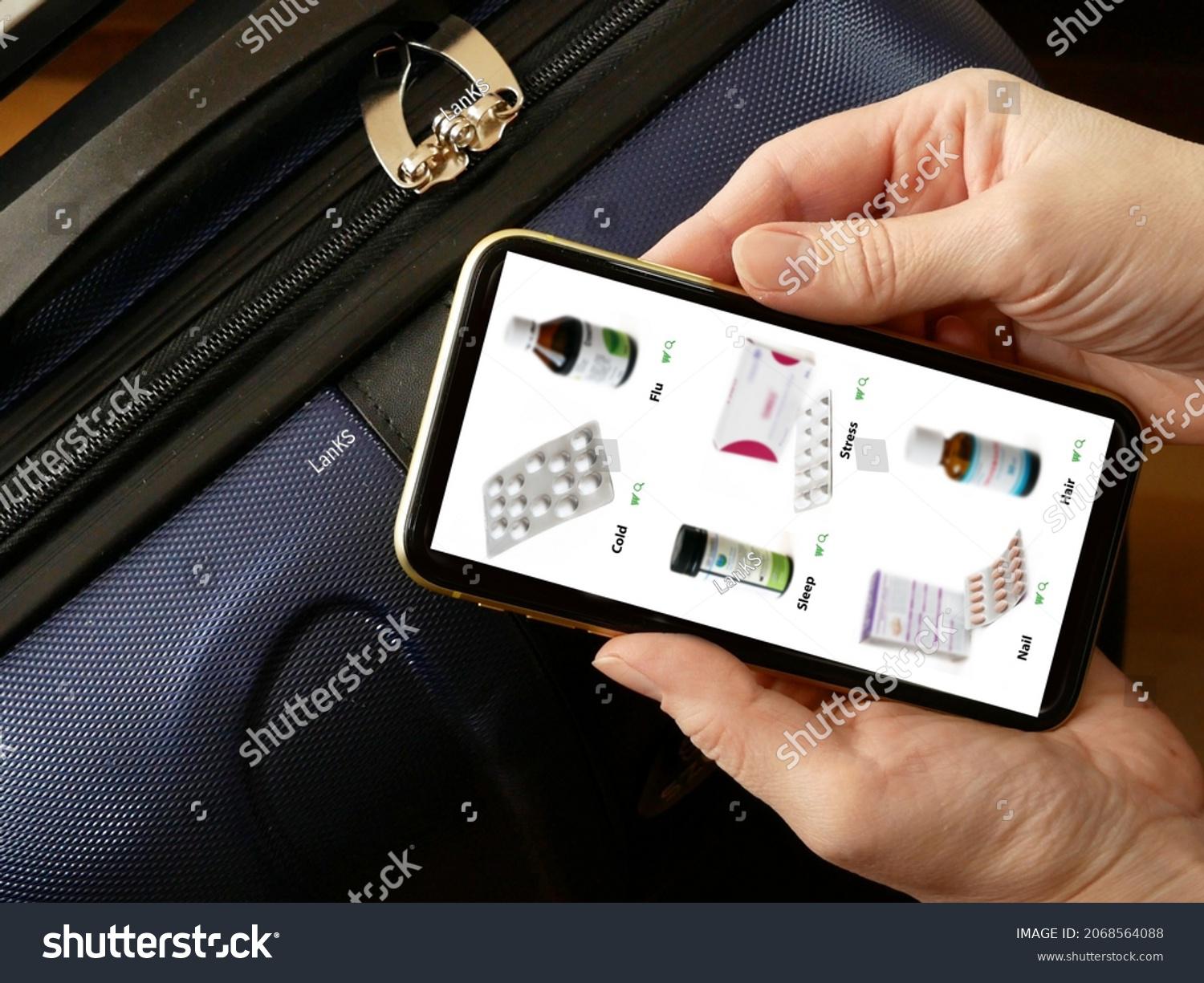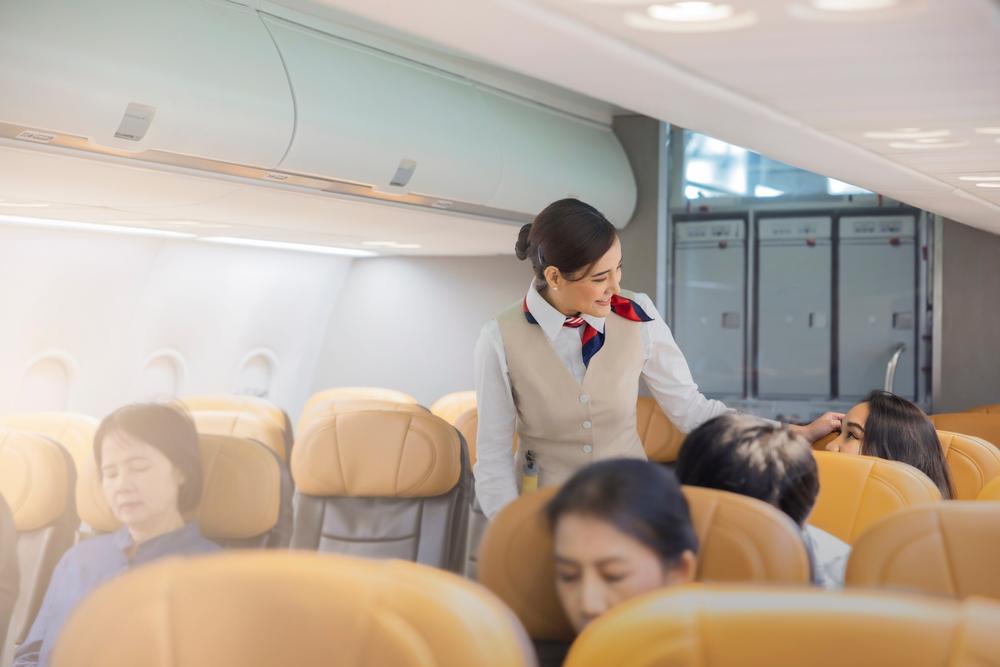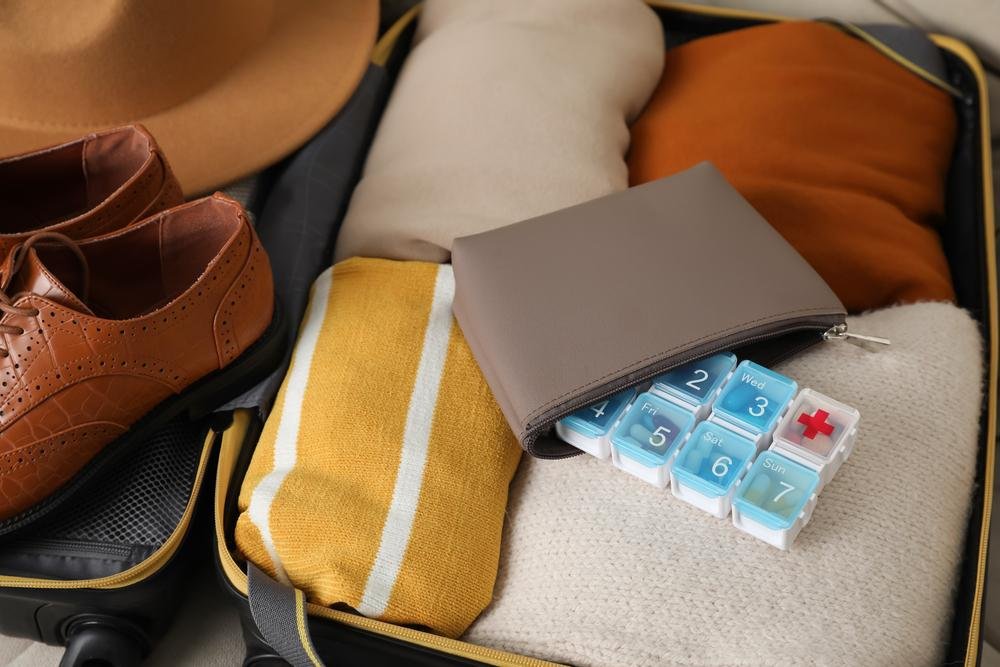It’s time to pack your bags: the clothes are already sorted, the passport is in your hand, the sanitary items are in the toiletry bag, and… then comes the doubt: Is it possible to take medicine on trips abroad? Which drugs are prohibited on flights?
So that your dream doesn’t turn into a nightmare while going through the immigration process, we’ve compiled a list that answers the most frequently asked questions when booking a personal pharmacy for a trip abroad. Check it out below!
The international traveler should be clear about two things. First, not all drugs are allowed abroad, and even if they are, some need a prescription.
Therefore, the ideal is to leave the excess behind to avoid headaches. Secondly, those who are going to leave the country should not forget that if necessary, they can buy everything they need, including medicines, at their destination.
Each country has specific legislation regarding the pharmacy trade, and some products purchased for free in Brazil may require a prescription elsewhere.
So you’re going to need insomnia medication? Have one on hand, preferably translated!
Can I take medicine on the plane?
Whether you’re traveling nationally or internationally, the rules allow medication and other healthcare items to be taken into the airplane cabin. But every rule has exceptions and this is no different.
For example, the passenger is expected to receive only one. A decent amount of medicine for the time you intend to spend away from home. Exaggerations can make immigration agents suspicious.
Despite this, there are no restrictions for pills and tablets. Syrups, sprays and liquid preparations in general should not exceed 100 ml. It is also important that they are in transparent and closed bottles.
Which drugs can not be taken abroad?
When it comes to international travel, the problem when setting up the pharmacy is: medicines banned. Each country has the autonomy to identify drugs that may or may not circulate within its territory.
This is usually done by specific organizations. Here in Brazil the Health Surveillance Agency (Anvisa) is responsible for this role, while in the United States the responsibility falls to the Food and Drug Administration (FDA).
Therefore, the first step Search on the internet which institution regulates the drugs in your destination. and see the list they provide. You can also take advantage of this and analyze whether the drug will need a prescription to be purchased there.

blinds
The following list shows some pills sold in Brazil that may be banned abroad:
dipyrone
Dipirona, one of the most used pain relievers in Brazil, is not very popular abroad. One of its side effects is anaphylactic shock, so it is often replaced with Paracetamol and Aspirin.
- Forbidden: Sweden, United States, United Kingdom and others.
sibutramine
Sibutramine, which is used as an appetite suppressant in people undergoing obesity treatment, can cause stroke, heart attack and other side effects.
- Forbidden: USA, European Union, Uruguay, Australia, Paraguay, among others.
number 35
Common in Brazil, this method of contraception is banned in France. In 2013, there were 4 deaths from thrombosis attributed to the use of the drug.
avastin
The pill, used to treat breast cancer, was allowed on American soil until the FDA concluded that there was no scientific evidence to prove its benefits. Despite this, the drug is still authorized for other diseases.
- Forbidden: United States of America
rally
This drug is effective in relieving acute and chronic pain and detoxifying narcotics. Despite their use, it is not allowed to enter Russian territory.

any doubt, It would be useful to talk to the company responsible for the flight.will give information about the precautions and practices to be taken. One of them is to carry, for example, pills in their original packaging.
There are special cases for patients with certain diseases, such as diabetes, who can carry needles and syringes in the cabin and, if necessary, thermal bags to carry insulin. In these cases, consult the airline.
Asthma patients can also carry their bronchodilators. Those who want to board the plane with their own oxygen balloon should inform the flight attendants.
If you are going abroad, do your research in advance and always have your medical prescription ready and translated. Additionally, it’s always worth hiring a health plan. As the saying goes: safer than sorry!
Source: Tec Mundo
I am Bret Jackson, a professional journalist and author for Gadget Onus, where I specialize in writing about the gaming industry. With over 6 years of experience in my field, I have built up an extensive portfolio that ranges from reviews to interviews with top figures within the industry. My work has been featured on various news sites, providing readers with insightful analysis regarding the current state of gaming culture.












